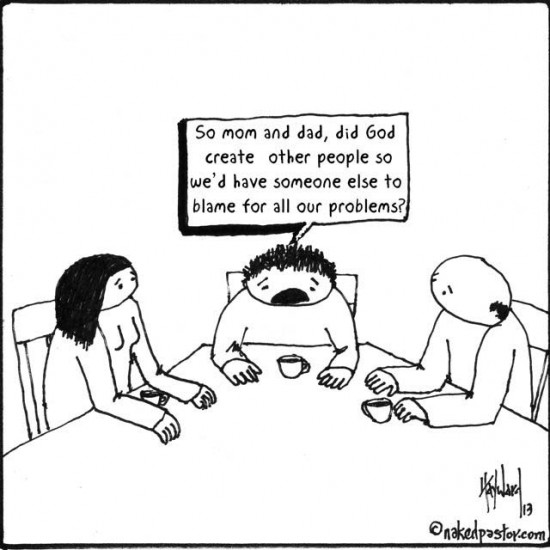 Grace is offensive. Back in this post from December of last year I quoted Merton:
Grace is offensive. Back in this post from December of last year I quoted Merton:
We must be ready to cooperate not only with graces that console, but with graces that humiliate us. Not only with lights that exalt us, but with lights that blast our self-complacency. Much of our coldness and dryness in prayer may well be a kind of unconscious defence against grace. Without realizing it, we allow our nature to de-sensitize our souls so that we cannot perceive graces which we intuitively foresee may prove to be painful.
I’m convinced that it is love that induces the greatest transformation, not the threat of punishment, not the promise of reward, not passion, not effort, not willpower. If it is God’s kindness (read “love” or “grace”) that leads to repentance, then I have to believe that the same goes for me. This is why I and our community teaches and tries to live lovingly and graciously. It’s because I’m convinced this is what sets people free. Paul frequently prayed for his communities to grasp what the full dimensions of God’s love were because he believed this is what brought about the greatest and most profound transformation. Me too.
I was just talking with a friend of mine this afternoon who admitted she had gone through a spell of inexplicable anger and resentment. The usual religious or spiritual response would be to candy-coat her anger with a kind of superficial peace, something that would make her feel better about herself and more presentable to the people around her because a good religious person shouldn’t be angry. This requires a great deal of effort and denial and in the end is pure hypocrisy. Instead, she started to examine her anger and resentment and chased its shoots to the root, which she discovered was her own woundedness, her own fear of rejection and abandonment. She knows God loves her, even in her brokenness and weakness. So, when she calmly saw and admitted this, her anger and resentment instantly began to dissolve. Sometimes it happen this fast, and sometimes this kind of thing can take a lot more time.
Which is why my style and our community’s style is offensive to some: because it looks like we tolerate sin. It looks like we don’t believe in change or transformation. The kind of change that the whole human enterprise seems to admire and encourage is the candy-coated kind. Way more dazzle and impressiveness and instantaneous results. But it is just the candy coating and not the chocolate. I’m going after the chocolate, no matter how long it takes.
The fine art photograph is the creation of my friend Jorgen Klausen.















